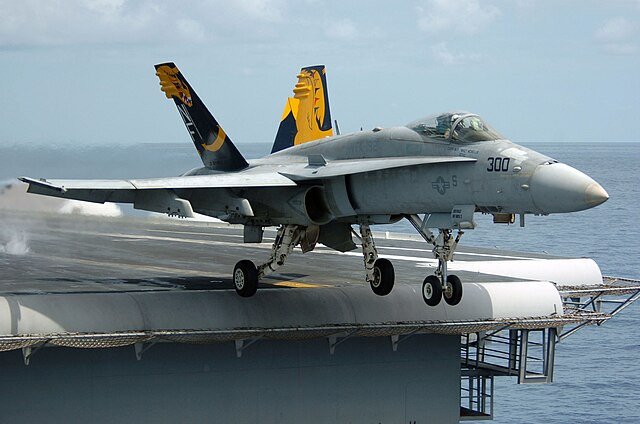The United States launched a series of airstrikes in Yemen over the weekend, targeting and killing multiple senior leaders of the Iranian-backed Houthi rebels, according to National Security Adviser Mike Waltz. Speaking on ABC's "This Week" on Sunday, Waltz emphasized the strikes' broader scope compared to previous U.S. military responses, marking a shift in strategy under President Donald Trump.
"These were not kind of pinprick, back and forth -- what ultimately proved to be feckless attacks," Waltz stated. "This was an overwhelming response that actually targeted multiple Houthi leaders and took them out."
The strikes, conducted solely by U.S. forces, involved significant naval power, including the USS Harry S. Truman carrier strike group and the USS Georgia cruise missile submarine. U.S. officials said the operation aimed to disrupt Houthi capabilities and leadership following months of attacks on commercial and military vessels in the Red Sea and surrounding waterways.
The Houthis, aligned with Iran, have launched more than 175 attacks on global commerce and targeted U.S. warships, according to Waltz. Their campaign, which began in October 2023 after the Gaza conflict erupted, has sunk two vessels, killed four sailors, and resulted in escalating shipping disruptions worldwide.
"Some 70% of global commerce is now diverting around South Africa to avoid the Houthis, resulting in higher shipping costs and supply chain issues," Waltz noted, underscoring the broader economic implications.
President Trump, in a social media post on Saturday, warned, "HELL WILL RAIN DOWN UPON YOU LIKE NOTHING YOU HAVE EVER SEEN BEFORE!" if Houthi attacks continue. Trump also issued a direct warning to Tehran: "Do NOT threaten the American People, their President... or Worldwide shipping lanes. If you do, BEWARE, because America will hold you fully accountable and, we won't be nice about it!"
Saturday's strikes come amid a renewed focus on holding Iran responsible for its backing of proxy groups across the Middle East. "We will hold not only the Houthis accountable, but we're going to hold Iran, their backers, accountable as well," Waltz said. He stressed that Iranian-supplied weaponry - including sophisticated air defenses, anti-ship cruise missiles, and drones - have bolstered the Houthis' ability to launch persistent attacks.
The U.S. State Department earlier this month reinstated the Houthis' designation as a "foreign terrorist organization," reintroducing sanctions and penalties on any entity providing material support to the group.
Trump administration officials argue the airstrikes are part of a broader effort to counter Iranian influence. "What the president has completely -- has repeatedly said is that Iran cannot have a nuclear weapon," Waltz added, reiterating that "all options are on the table" to prevent Tehran from advancing its nuclear program.
The Trump administration has also pressured Iran to reenter nuclear negotiations. Trump himself sent a letter to Iran's supreme leader, proposing talks while maintaining sanctions and leaving the possibility of military action open.
Meanwhile, the administration continues shuttle diplomacy efforts in other conflict zones, including Ukraine. Waltz revealed that ongoing discussions with Russia include the potential for a ceasefire, stating, "What we heard from President Putin was that he will absolutely consider a ceasefire."
However, Waltz acknowledged that territorial concessions by Ukraine might be under consideration, citing the need to assess U.S. national interests and realism. "Are we going to drive every Russian off of every inch of Ukrainian soil, including Crimea?" he asked, contrasting the Trump administration's diplomatic approach with the Biden administration's strategy of indefinite military support.






